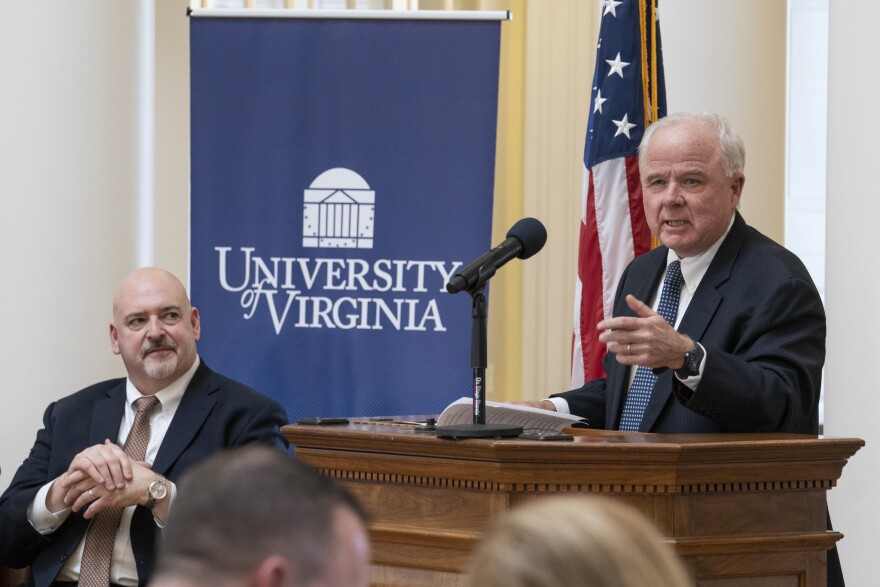The University of Virginia has announced plans for a new $300 million biotech center that will produce and test new treatments for many diseases. The center could break ground in a matter of months and is already recruiting the first of 100 new scientists.
The architectural work is already underway and UVA has begun recruiting for the Paul and Diane Manning Biotechnology Institute where scientists will pursue two central lines of research.

Craig Kent, CEO of UVA Health, says the center will study and develop treatments that work by modifying cells. “We’ll take a patient’s immune cells out and train them to attack the patient’s cancer and then infuse those cells back into the patient. That’s an area called CART T-cell therapy, and it works!”
And it will look for genetic solutions to human disease. “Somebody has a genetic problem where they’re missing a protein, and they don’t develop correctly. We then can create a gene that infuses that protein, inject that into patients, and then the protein is replaced, and then they live a normal life.”
Labs at the Fontaine Research Park will also be looking at better ways to administer medication like nanotechnology and targeted drug delivery.
Kent concedes there are already biotech hubs in the Research Triangle of North Carolina, in Boston and California, but he says there’s room for new players in new places. “The biotech industry is almost $3 trillion, and it’s growing at an exponential rate," Kent says. "So the opportunity for new epicenters for biotech to come online is incredible. I mean we’ve made a lot of discoveries in health and medicine over the last few years, but we’re just beginning.”
The institute plans to hire more than a hundred scientists, and Kent predicts it will spur economic development statewide. “We expect biotech companies to follow, because biotech companies want to be near a center that’s generating these new ideas, and some of the ideas actually will result in biotech companies, so then we’ll have a whole biotech industry coming into Charlottesville or Richmond or Northern Virginia or Southwest Virginia, so the economic impact over time as we grow and reach a critical mass I think will be quite substantial.”
He adds that the $300 million center will work with other universities to have an even greater impact on health in the Commonwealth and beyond. “We’re really excited about partnering with VCU, Virginia Tech, George Mason. Those are three examples of universities that are really doing great research, and I think the collaboration and synergy is going to make this even more powerful for the state and for our people and our patients.”
UVA contributed $150 million to this project and the Commonwealth will invest another $50 million. But Kent says the institute would not happen without the support of a Charlotttesville entrepreneur who runs life science and pharmaceutical companies. Paul Manning has pledged $100 million to get the new institute up and running.
This report, provided by Virginia Public Radio, was made possible with support from the Virginia Education Association.


